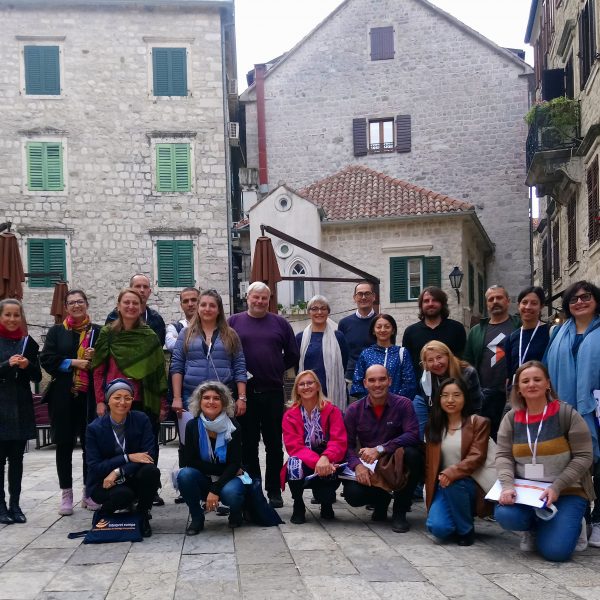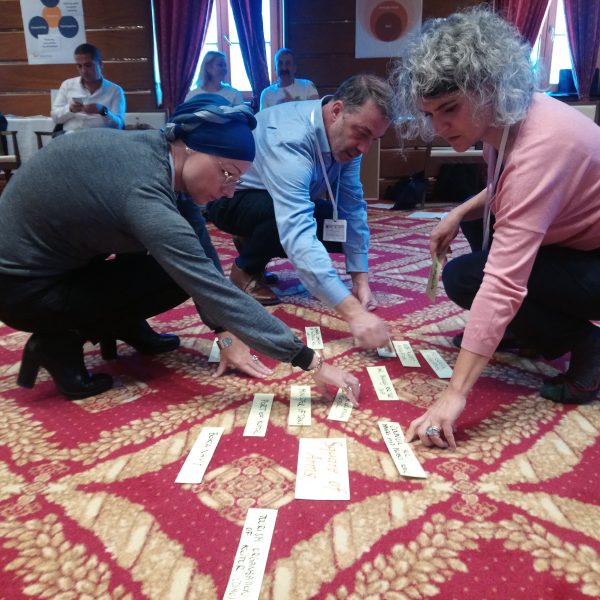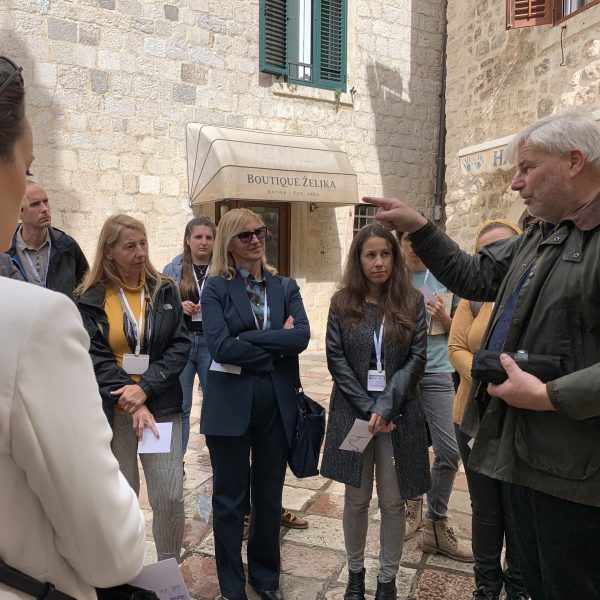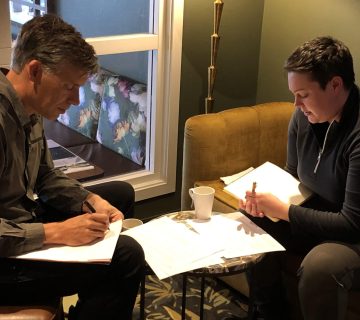Interpret Europe delivered a special training course on interpretive planning for UNESCO’s World Heritage Sites in Kotor, Montenegro.
Following an invitation from UNESCO, I took part in the WH-Interp training course on interpretative planning on World Heritage properties. One part of it was organised as a face-to-face five-day workshop in Kotor, Montenegro, and based on IE’s Certified Interpretive Planner (CIP) course.
Leaving on 9 October, I picked up Thorsten Ludwig in Ljubljana (Slovenia) and drove southwards, chatting the nine-hour drive away. We arrived in picturesque Kotor (Montenegro) at night. First impression: “Wow, Kotor is a magnificent and proud fortified ancient town!” Hidden in a large bay, protected with steep slopes, it must have been an important strategic point for protection of the hinterland and a vibrant antique market place throughout history.
20 experts from 11 countries gathered in a heritage hotel on the main square. Acquainted with stories told by heritage professionals and information given by stakeholders, authorities and locals, we had a demanding job – to outline the basic idea for an interpretive plan. Our playground was the Square of Arms in this ancient market town of Kotor.
Multiple questions were debated throughout four days: What does the Square of Arms offer? What interpretation already exists there? What are the relationships of various stakeholders with the place? How do visitors experience it? Should locals be involved and how? What Outstanding Universal Values initiated the protection of Kotor as a World Heritage Site? and last but not least, what could visitors and locals learn from its heritage for our common European or even world future? Not an easy task for four days, however, on day five, several local representatives listened to three different proposals, confirming with nodding heads that the proposals are actually realistic and that they have already been looking in a similar direction.
Check out the other participants’ impressions shared for the official UNESCO report: https://en.unesco.org/news/pilot-regional-course-interpretive-planning-world-heritage-properties-completed-its-second.
The pilot regional course on interpretive planning at World Heritage properties in Europe was a joint product of more than a year’s cooperation between Interpret Europe’s senior trainers, Thorsten Ludwig and Valya Stergioti, and UNESCO’s Regional Bureau for Science and Culture in Europe. The course was based on the IE Certified Interpretive Planner (CIP) course.
Helena Vičičis IE’s Managing Director.
She can be contacted at: helena.vicic@interpret-europe.net.
To cite this article: Vičič, Helena(2021) ‘Interpretive planning for World Heritage’ in Interpret Europe Newsletter 4-2021, pg.6
Available online: https://interpret-europe.net/wp-content/uploads/2021/12/Newsletter-Winter-2021.pdf






